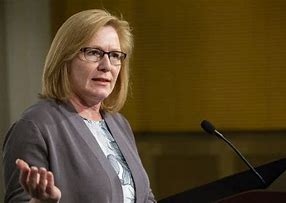Shining Together Capital Campaign Celebration Sunday
April 16, 2023/Second Sunday of Easter
Trinity
Lutheran Church, Moorhead, MN
John
20:19-31
In the name of Jesus. Amen.
The lesson that was just read is one of the Bible stories we’ve all heard at least annually in our Sunday morning worship services.
Even in 1978 when we North American Lutherans moved away from our old one-year lectionary (a lectionary, which is a list of appointed scripture lessons for all the Sundays and festivals in the church year)….even when we started using a new 3-year lectionary that was designed to expose us to three times as many different Sunday scripture readings over the course of three years—even so we’ve still been hearing this Thomas story every single year on this Second Sunday of Easter.
Why is that? I think that we share this gripping story, which is told only here in John’s Gospel…because of the provocative and timely way it acknowledges that not everyone who hears the story of Jesus’ death and resurrection immediately believes it.
Even if some folks who catch wind of the story of Easter don’t always believe it at first, they may well come to believe it later, as in fact happened to Thomas, one of Jesus’ 12 disciples, Jesus’ closest followers.
Thomas, you see, started out as someone stuck on the notion that “seeing is believing.” Later, though, Thomas became a proclaimer of Christ who learned that “believing is seeing” particularly when we’re grappling with the miracle of our Lord’s Resurrection.
What wonderful news that is for all of us who have come to believe in Christ even though (unlike Thomas) we have not put our fingers right into the nail-holes in Jesus’ hands, let alone thrust our hands right into the sword-pierced side of our Savior.
Notice how the Risen Christ took Thomas by the hand and walked him through everything Thomas had asked for, everything Thomas needed to know in order to embrace the truth of Christ’s resurrection.
Amazing! Rather than scolding Thomas—the Risen Christ took as much time as Thomas needed in order to proclaim boldly and clearly those powerful words: “My Lord and my God!”
I believe that the reason the Risen Christ was so patient with skeptical Thomas…was that Jesus knew there was a believer already living inside of Thomas…..and not just a believer, mind you, but a proclaimer of the Good News of Jesus’ saving life, redemptive death and miraculous resurrection.
As some of us preacher-types like to say: Thomas the doubter became Thomas the shouter….Thomas who spent himself, losing his own life for the sake of sharing Christ wherever his feet took him.
But just where was that? Where exactly did Thomas’s feet take him?
Fourteen years ago, Joy and I made our first trip to our synod’s companion synod in India, and it was during that pilgrimage that we learned how precious St Thomas has been and still is to our fellow Christians in India. These believers who live way on the opposite side of the globe, have followed our Lord’s command to “Go therefore and make disciples of all nations.”
A tradition not found in our Bible but cherished by many of India’s Christians is that St. Thomas traveled over 4,000 miles from Jerusalem in Israel to Chennai (formerly Madras) in India, in order to preach the Good News of Jesus Christ.
When Joy and I visited the city of Chennai, we found ourselves surrounded by artwork, architecture, stories, and the 21st century presence of Indian Christians many of whom belong to the Mar Thoma Church, that is: the Saint Thomas Church, numbering over 1.6 million believers in India and around the world.
We began our first day in Chennai by climbing a small hill called St. Thomas Mount—the hill on which St Thomas is believed to have been killed by a spear thrust into him by an opponent of Thomas’s preaching of Christ, in the year 72 A.D.
At the bottom of St Thomas Mount, we visited the lovely Basilica Cathedral of St. Thomas, which was built in 1523 A.D. (during the lifetime of Martin Luther). In the crypt underneath the cathedral we paused in a small chapel that housed a statue of the martyred St Thomas, lying in repose inside a glass-encased casket—next to a wall displaying a relic that allegedly contained part of one of St Thomas’s fingers.
Now I realize you may be wondering: Why all this attention to St Thomas?
It’s because the Mar Thoma Christians and all other Christians around the globe, didn’t just come to faith in the crucified and risen Lord Jesus Christ by accident.
Far from it! For, you see, when the Risen Christ commissioned his disciples to “go and make disciples of all nations” they did indeed fan out from Jerusalem to eventually blanket the whole earth…including you and me and all our forebears in faith who’ve been brought into the Body of Christ, wherein we here at Trinity are now seeking fresh ways to shine together, bearing the light of Christ.
But before we dove into our capital campaign, we took one of wisest, most significant steps we could have taken: the initial step of creating a missional narrative for our congregation that boldly declares: “God is calling Trinity Lutheran Church to shine the light of Christ into Downtown Moorhead and beyond.”
Thank God that this eye-catching, compelling call is now leading us to refocus our vision, renew our ministries, and refresh our facilities.
In closing, I invite you to notice something in the order of worship in your bulletin…near the sermon…a unique symbol that comes from India. It’s the emblem of our our sisters and brothers in Christ of India’s Mar Thoma Church.
When I recently discovered this emblem, I was struck by the slogan "Lighted to Lighten”—a slogan from the other side of the world that is nearly identical to our congregation’s missional calling to “Be A Light!” here in downtown Moorhead and beyond.In the name of Jesus, the light of the world. Amen.









